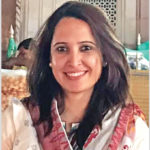Interfaith dialogue can combat extremism

This guest post is by Farzana Mahmood, Barrister, Executive Director, Bangladesh Manobadhikar o Poribesh Andolon. She was a member of the Inaugural Class of the ICLRS Young Scholars Fellowship on Religion and the Rule of Law, held in Oxford (2018).
Why we need peaceful conversations between different religions
from the Dhaka Tribune – April 25, 2019
One of my Sri Lankan friends emailed yesterday: “Evil is released on Easter Sunday in Sri Lanka.” Three churches and two hotels have been bombed on Easter Sunday while people were worshiping in the churches. The churches in Sri Lanka mostly worked for peace and harmony in Sri Lanka.
The recent developments of religious extremism in the post-war situation have become vicious. In the context of political coups, geo-political interests, violent mindset of the organized violent groups and individuals, this has happened.”
This heinous crime committed against the particular religious community killed more than 300 people and nearly 500 were injured. This attack is not an attack only on the Christians or on the people of Sri Lanka, it is an attack on humanity. We express our solidarity with victims’ families and the people of Sri Lanka at this time of grief and sorrow.
In Bangladesh also, we have seen how Jamaat promoted the Islamic bigots and extremists like Bangla Bhai, Shaekh Abdur Rahman, and the state patronized killing of minorities in the name of Islam. (more…)
